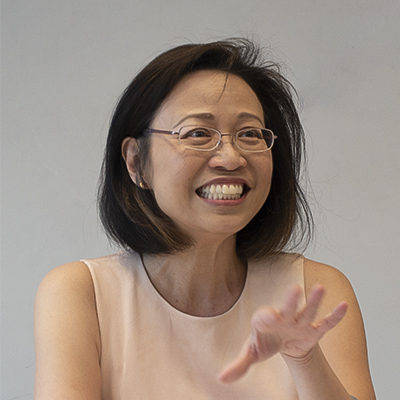
Anne Cheng
Professor Anne Cheng, Professor Paul Muldoon, and Dr. Rebecca Munson joined a conversation co-hosted by the McGraw Center for Teaching and Learning and the Center for Digital Humanities (CDH) on the possibilities for “lab” learning in the Humanities and interpretive Social Sciences.

Paul Muldoon
The panelists reflected on the (new) American Studies Col(Lab), the Princeton Atelier, and the CDH, which allow for intergenerational and cross-professional communities of practice – communities that may form for a day, a semester, or the duration of a project. Several themes emerged from the panelists’ remarks: an urgent recognition that scholars and artists don’t work in isolation; that “not knowing” is what generates new knowledge and art (and yet is not how we typically organize our teaching); that failure is a powerful tool for learning; and that inviting students to help set a research or artistic agenda is a deeply democratic practice.

Rebecca Munson
Yet the panelists also acknowledged how new forms of pedagogy and research present risks: the risk of discomfort, felt by faculty as well as students, and the risk of producing work that isn’t easily recognized or rewarded institutionally. To make knowledge or art collaboratively is to work at what Anne Cheng termed “the edges of our expertise.”


